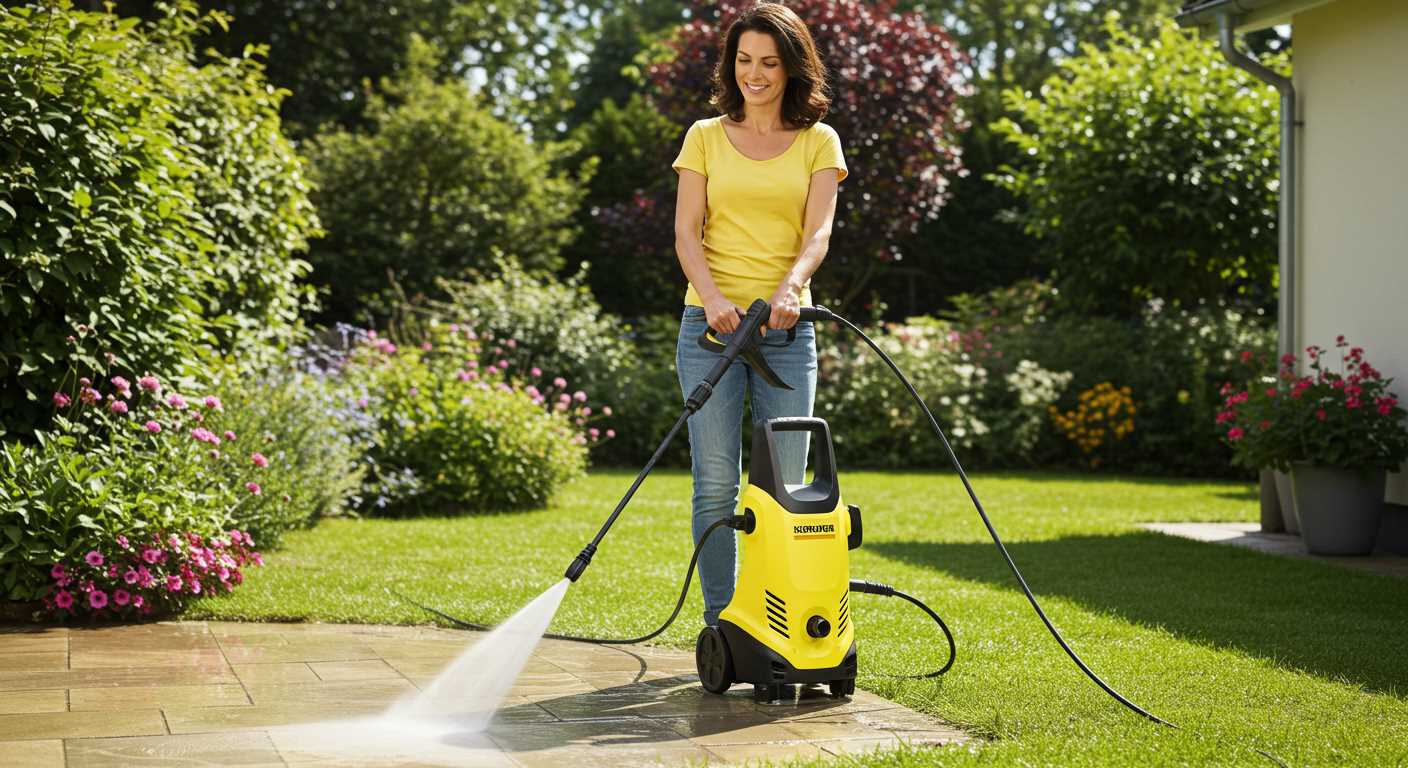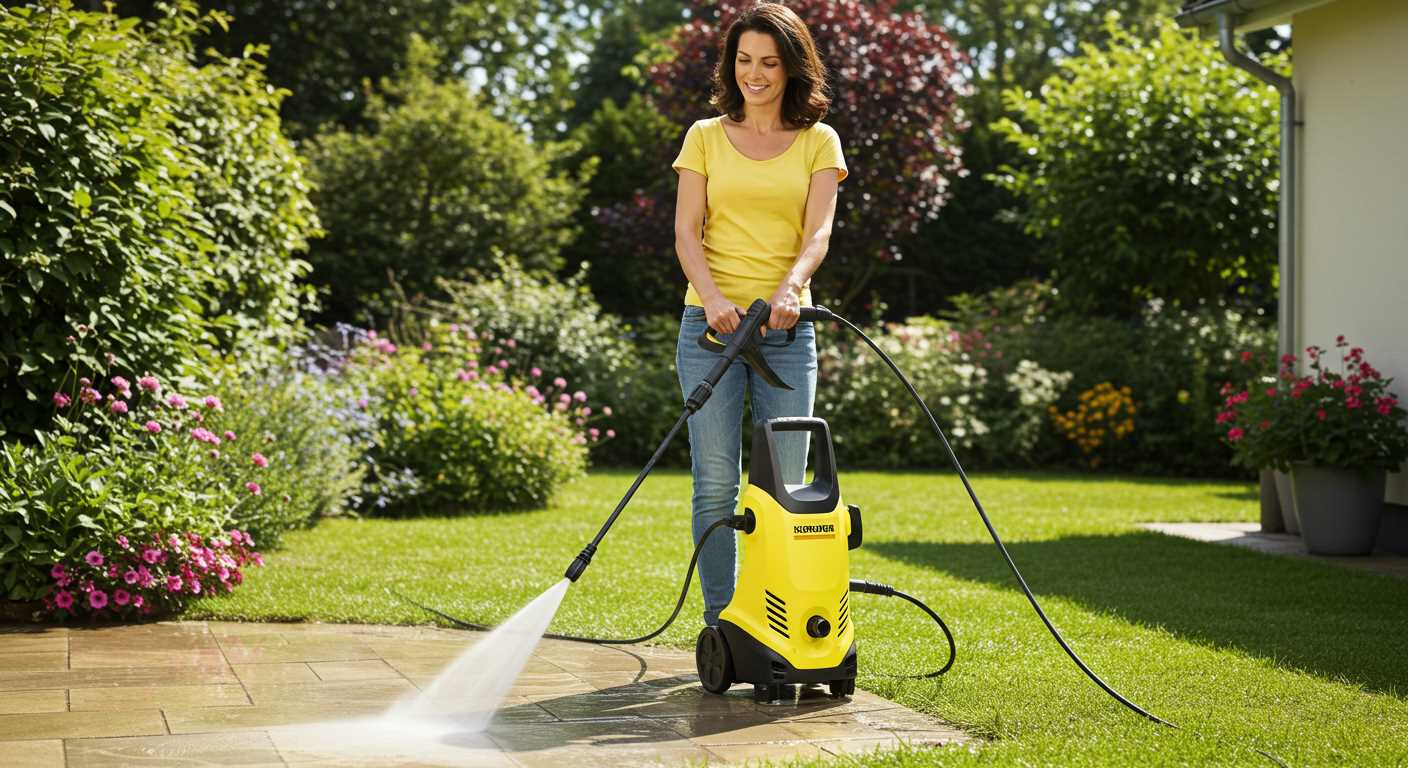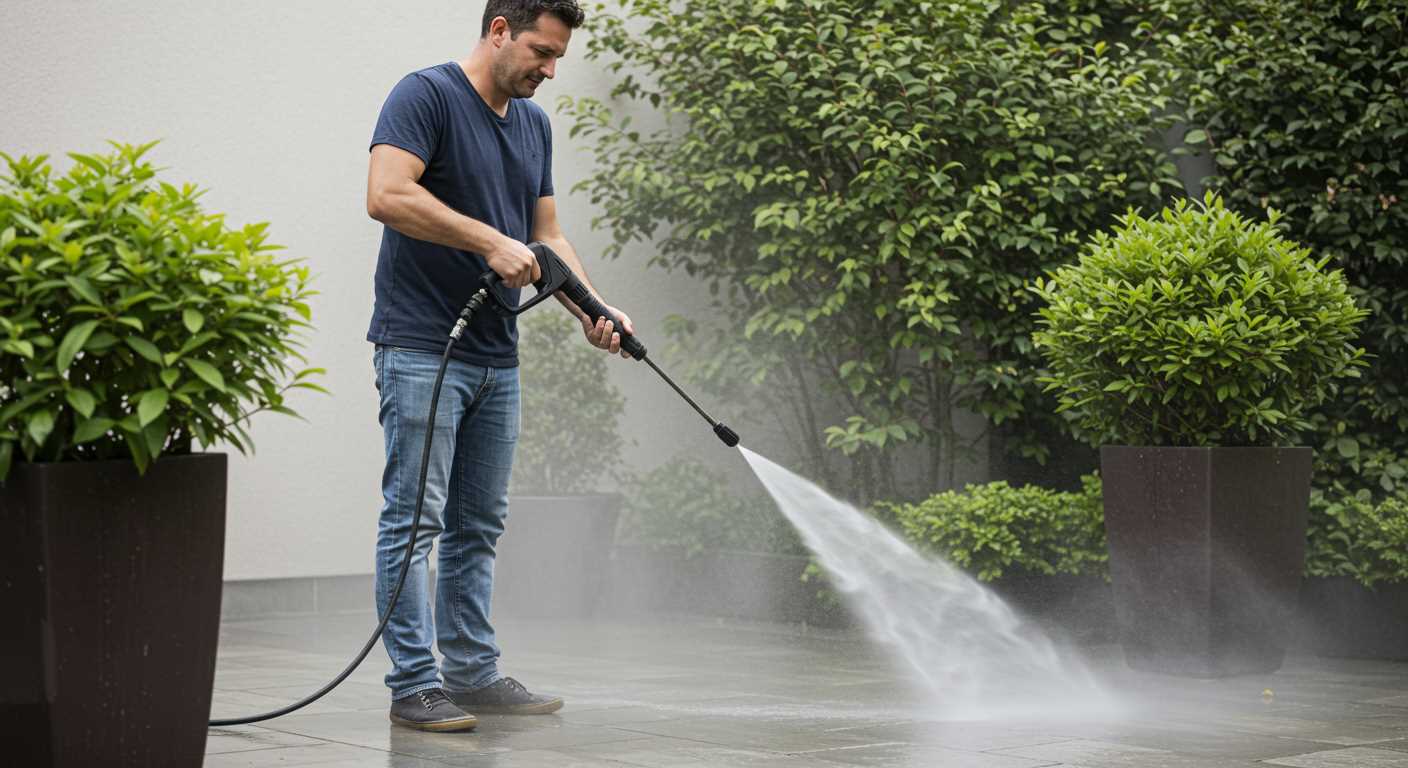




As a homeowner and DIY enthusiast, I have often found myself in need of a reliable pressure washer to tackle a variety of cleaning tasks around my property. From removing stubborn dirt and grime from patios to revitalising the exterior of my home, a medium duty pressure washer has proven to be an invaluable tool. In this article, I will share my insights on the best medium duty pressure washers available on the market, highlighting their features, benefits, and what makes them stand out.
This article is designed for anyone looking to invest in a pressure washer that strikes a balance between power and versatility. Whether you’re a seasoned pro or a novice just starting your cleaning journey, I aim to provide you with the information you need to make an informed decision. I will cover essential aspects such as pressure ratings, water flow, mobility, and additional features that enhance usability.
By the end of this article, you will have a clear understanding of the top medium duty pressure washers, complete with comparisons and recommendations. You’ll be equipped with the knowledge to choose a model that suits your specific needs, ensuring your cleaning tasks are completed efficiently and effectively. Let’s dive into the world of pressure washers and explore the best options available for your home and garden!
Key Features to Look for in Medium Duty Models
When selecting a medium duty pressure washer, it’s essential to consider several key features that enhance performance and usability. These features not only determine the effectiveness of the machine but also ensure that it meets your specific cleaning needs.
Medium duty pressure washers are designed for a variety of tasks, from cleaning patios and driveways to washing vehicles. Understanding the important characteristics can help you make an informed decision.
Important Features
- Pressure Rating: Look for a pressure rating between 1500 to 3000 PSI. This range is ideal for tackling tough stains without causing damage to surfaces.
- Water Flow Rate: A higher water flow rate, measured in gallons per minute (GPM), allows for quicker cleaning. Aim for at least 1.5 GPM for efficient performance.
- Durability: Choose models constructed with high-quality materials such as metal frames and reinforced hoses to withstand regular use.
- Portability: Consider the weight and design. Models with wheels and a compact design are easier to manoeuvre, especially for larger cleaning jobs.
- Accessories: Look for a pressure washer that comes with a variety of nozzles and attachments, which can enhance versatility for different cleaning tasks.
By focusing on these features, you can ensure that you select a medium duty pressure washer that is both effective and reliable for your cleaning projects.
Top Brands Offering Reliable Pressure Washers
When it comes to selecting a pressure washer, the brand can significantly influence the reliability and performance of the equipment. Many manufacturers have established themselves as leaders in the industry, providing users with machines that not only perform well but also stand the test of time. These brands often invest in research and development to ensure their products meet the evolving needs of consumers.
In addition to performance, reputable brands typically offer excellent customer support, ensuring that users have access to assistance should any issues arise. This support can include warranties, service options, and readily available replacement parts, all of which contribute to a positive ownership experience.
Key Features of Reliable Brands
- Durability: Well-known brands often use high-quality materials that enhance the lifespan of their pressure washers.
- Performance: Reliable brands are known for their powerful motors and efficient pump systems, delivering consistent cleaning results.
- Energy Efficiency: Many leading manufacturers focus on creating machines that consume less water and energy, making them eco-friendly options.
- Innovative Technology: Top brands frequently incorporate new technologies, such as adjustable pressure settings and user-friendly interfaces, enhancing usability.
Consumers should consider exploring the offerings from established brands that prioritise quality and customer satisfaction. Doing so not only ensures reliable performance but also peace of mind for all cleaning tasks.
Performance Comparison: PSI and GPM Explained
When considering medium duty pressure washers, understanding the performance metrics of PSI (pounds per square inch) and GPM (gallons per minute) is crucial. These two figures play a significant role in determining the efficiency and effectiveness of a pressure washer for various cleaning tasks.
PSI indicates the pressure at which water is expelled from the machine, while GPM measures the volume of water being used. Together, these metrics help consumers assess how powerful and efficient a pressure washer will be for specific applications, from washing vehicles to cleaning driveways.
Understanding PSI and Its Importance
PSI is a measure of the force of the water stream. A higher PSI means a stronger spray, which can effectively remove tough stains, dirt, and grime. However, it is important to note that not all surfaces can withstand high pressure. For instance, delicate surfaces such as painted wood or soft masonry may be damaged by excessive pressure. Therefore, it’s essential to match the PSI rating with the intended cleaning task.
The Role of GPM in Cleaning Efficiency
GPM refers to the flow rate of water from the pressure washer. A higher GPM means that more water is being used, which can help rinse away dirt and debris more effectively. This is particularly important for larger areas or surfaces that require thorough cleaning, as it ensures that the water can cover more ground in less time. However, a balance between PSI and GPM is necessary; a machine with high pressure but low flow may not clean as efficiently as one with moderate pressure and high flow.
PSI and GPM: Finding the Right Balance
Ultimately, the best performance of a medium duty pressure washer comes from finding the right balance between PSI and GPM. A machine with a PSI of around 2000 to 3000 combined with a GPM of 2.0 to 2.5 is generally suitable for most residential tasks. Consider the specific cleaning needs and the surfaces being treated to ensure optimal results.
| Performance Metric | Impact |
|---|---|
| PSI | Indicates cleaning power; higher PSI removes tougher stains. |
| GPM | Measures water flow; higher GPM rinses dirt away more effectively. |
Maintenance Tips for Longevity of Your Pressure Washer
Regular maintenance is crucial for ensuring the longevity and performance of your pressure washer. By following a few simple guidelines, you can keep your machine in optimal working condition, allowing it to tackle tough cleaning tasks effectively. Neglecting maintenance can lead to decreased efficiency and costly repairs, so it’s essential to invest time in proper care.
One of the primary aspects of maintaining your pressure washer is understanding its components and how they work together. Familiarise yourself with the manual to ensure you know how to operate and service your machine correctly. Here are some essential maintenance tips to keep your pressure washer running smoothly:
Essential Maintenance Practices
- Regular Cleaning: After each use, clean the exterior of the pressure washer to remove dirt and debris. Ensure that the nozzles and filters are free from clogs.
- Check Oil Levels: If your pressure washer has an engine, regularly check and change the oil according to the manufacturer’s guidelines to keep the engine running efficiently.
- Inspect Hoses: Frequently examine hoses for signs of wear or damage. Replace any frayed or cracked hoses to prevent leaks or bursts during operation.
- Winterisation: If you live in a region with freezing temperatures, winterise your pressure washer by draining all water and using a pump saver product to protect internal components.
- Use the Right Detergents: Always use detergents recommended by the manufacturer to prevent damage to the machine and maintain its performance.
By adhering to these maintenance tips, you can significantly extend the lifespan of your pressure washer and ensure it remains a reliable tool for all your cleaning needs. Regular attention to its upkeep not only enhances performance but also saves you money in the long run by reducing the likelihood of repairs and replacements.
Accessories That Enhance Your Pressure Washing Experience
When it comes to pressure washing, having the right accessories can significantly improve your overall experience and efficiency. These tools not only help you achieve better results but also make the process easier and more enjoyable. Whether you are tackling tough grime on your driveway or cleaning delicate surfaces, the right accessories can make all the difference.
From nozzles to surface cleaners, the variety of accessories available can cater to different cleaning tasks. Understanding which tools to utilise for specific jobs can enhance the effectiveness of your pressure washer and help you complete projects more quickly.
Common Accessories for Improved Performance
- Nozzles: Different spray patterns allow you to customise the pressure and coverage for various surfaces. A rotating nozzle, for instance, can provide a powerful clean for stubborn stains.
- Surface Cleaners: These attachments are designed for large flat surfaces, providing even cleaning without streaks. They save time and effort when cleaning patios or driveways.
- Extension Wands: Reach high or distant areas with ease, making tasks like cleaning gutters or upper storey windows more manageable.
- Brush Attachments: Perfect for scrubbing surfaces, these brushes can tackle tough dirt on surfaces like vehicles or outdoor furniture.
- Soap Dispensers: Enhance the cleaning power of your pressure washer by applying soap or detergent effectively, making it easier to break down grime.
Investing in quality accessories not only optimises your cleaning tasks but also prolongs the lifespan of your pressure washer. By selecting the right attachments, you can ensure that your equipment performs at its best, delivering outstanding results every time.
Common Troubleshooting Issues and Solutions
Medium duty pressure washers are powerful tools that can handle a variety of cleaning tasks. However, like any machinery, they can experience problems that may affect their performance. Understanding common issues and their solutions can help users maintain their equipment effectively.
One frequent issue is the pressure washer not starting. This can arise from several factors, including fuel problems, electrical issues, or a clogged spark plug. Checking the fuel level, ensuring the power supply is connected, and inspecting the spark plug for dirt or damage are essential first steps.
Common Problems and Their Solutions
- Loss of Pressure: This can occur due to a clogged nozzle or a damaged hose. Inspecting and cleaning the nozzle or replacing any damaged components can restore pressure.
- Unusual Noises: Strange sounds may indicate a loose part or an issue with the pump. Tightening loose parts or seeking professional help for pump repairs can resolve this.
- Water Leaks: Leaks can stem from worn seals or loose fittings. Regularly checking connections and replacing worn seals can prevent leaks.
- Overheating: If the machine overheats, it may be due to extended use or a blocked water inlet. Allowing the machine to cool down and ensuring the water inlet is clear can mitigate this issue.
Regular maintenance is crucial for preventing these issues. Users should follow the manufacturer’s guidelines for care and storage to extend the life of their pressure washers. By addressing these common problems promptly, users can ensure their medium duty pressure washers operate efficiently and effectively.
Customer Reviews: What Users Are Saying About Popular Models
When it comes to selecting the best medium duty pressure washers, user reviews provide invaluable insights into performance, reliability, and overall satisfaction. Many customers have shared their experiences with various models, highlighting both the strengths and weaknesses of each. This feedback can help potential buyers make informed decisions based on real-world usage.
Across multiple platforms, users have praised the ease of use, power, and versatility of popular models. However, some have also pointed out issues such as durability concerns and customer service experiences. Below is a summary of what users are saying about some of the top-rated medium duty pressure washers.
- Model A: Users appreciate its lightweight design and powerful motor, making it ideal for residential cleaning tasks. Many mention its effectiveness on patios and vehicles.
- Model B: Reviewers highlight the extensive range of nozzles, which enhance its versatility. However, some users report that it can be noisy during operation.
- Model C: Customers commend its build quality and reliability. Some have noted that it struggles with tougher stains but excels with general cleaning.
- Model D: Users love the compact size and easy storage. Nevertheless, a few reviews mention that the pressure could be higher for more demanding jobs.
In conclusion, while customer reviews indicate that many medium duty pressure washers perform well for everyday tasks, potential buyers should consider their specific needs and preferences. By analysing user feedback, one can find a model that fits both their cleaning requirements and budget.
Top 10 Best Medium Duty Pressure Washers




Best Medium Duty Pressure Washers
Features
| Part Number | 1.637-500.0 |
| Model | 1.637-500.0 |
| Color | Black, Yellow |
| Language | French |
Features
| Part Number | AP |
| Color | Green |
Features
| Part Number | SQ-222-2 |
| Model | SQ-222 |
| Color | black |
Features
| Model | 7abd6aa0-b969-404f-a9df-c10d65f4cb7d |
| Color | Silver |
Video:
FAQ:
What features should I look for in a medium duty pressure washer?
When selecting a medium duty pressure washer, consider several key features. Look for a powerful motor, typically ranging from 1400 to 2000 PSI, which provides sufficient pressure for a variety of cleaning tasks. A flow rate measured in gallons per minute (GPM) is also important; a higher GPM means more water is delivered, improving cleaning efficiency. Additionally, check for adjustable nozzles that allow you to change the spray pattern, as well as a long hose and power cord for better reach. Finally, consider the weight and portability of the unit, ensuring it is easy to move and store.
How do medium duty pressure washers compare to light and heavy duty models?
Medium duty pressure washers offer a balance between light and heavy duty models. They typically provide pressure ratings between 1400 and 2000 PSI, making them suitable for a range of tasks, such as cleaning patios, decks, and vehicles. Light duty models, on the other hand, usually have lower pressure ratings and are best for smaller jobs like washing windows. Heavy duty washers exceed 2000 PSI and are designed for more intensive cleaning tasks, such as removing tough stains from concrete or heavy machinery. Choosing the right type depends on the nature of the cleaning tasks you intend to perform.
Can I use a medium duty pressure washer for car washing?
Yes, medium duty pressure washers are suitable for washing cars. With their pressure range of 1400 to 2000 PSI, they can effectively remove dirt and grime without damaging the vehicle’s paint. It’s advisable to use a suitable nozzle, such as a fan or soap nozzle, to ensure a gentle yet effective wash. Additionally, using a detergent designed for pressure washers can enhance the cleaning process and give your car a thorough shine. Just be sure to maintain a safe distance from the car’s surface to avoid any potential damage.
What maintenance is required for a medium duty pressure washer?
Proper maintenance of a medium duty pressure washer helps extend its lifespan and performance. Regularly check and clean the filter to prevent clogs, and inspect the hoses for any signs of wear or damage. After each use, it’s important to run clean water through the system to flush out any detergent residues. Additionally, store the washer in a dry place to avoid freezing during colder months, which can damage the pump. Refer to the manufacturer’s guidelines for specific maintenance recommendations, including oil changes and any necessary part replacements.
Are there any safety precautions I should take when using a pressure washer?
Yes, safety is paramount when using a pressure washer. Always wear protective gear, including safety goggles and gloves, to shield yourself from debris and high-pressure water spray. Ensure that the area you are cleaning is free of obstacles and any electrical hazards. Maintain a safe distance from surfaces, particularly when using high pressure, to avoid injury or damage. Additionally, be cautious of slippery surfaces and avoid pointing the nozzle at people or pets. It’s also advisable to read the user manual for specific safety instructions related to your model.
What features should I look for in a medium-duty pressure washer?
When selecting a medium-duty pressure washer, consider several key features to ensure it meets your needs. Firstly, check the PSI (pounds per square inch) and GPM (gallons per minute) ratings; a good range for medium-duty washers is between 2000-3000 PSI and 1.5-2.5 GPM. Secondly, look at the type of motor: electric models are quieter and easier to maintain, while gas models typically offer more power. Additionally, examine the nozzle options available, as different nozzles allow for versatile cleaning applications. Lastly, consider the weight and portability of the unit, especially if you need to move it around frequently.
How do I maintain my medium-duty pressure washer to ensure its longevity?
To keep your medium-duty pressure washer in good shape, regular maintenance is key. Start by cleaning the filter and checking for any clogs in the hose or nozzle, as these can affect performance. It’s advisable to flush the pump with clean water after each use to prevent debris buildup. Additionally, check the oil level if you have a gas-powered model and change it according to the manufacturer’s guidelines. Keeping the unit stored in a dry place will also help prevent rust and corrosion. Lastly, inspect the power cord and hoses for any wear and tear, replacing them as necessary to ensure safe operation.




.jpg)


